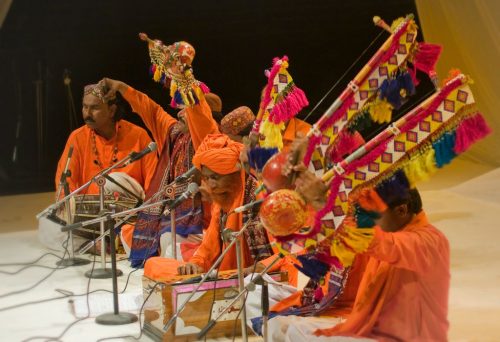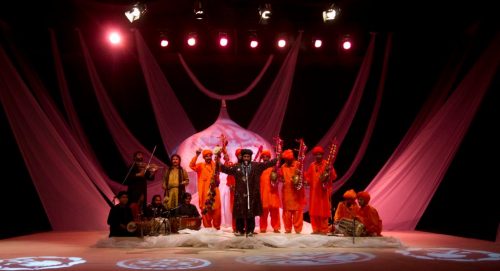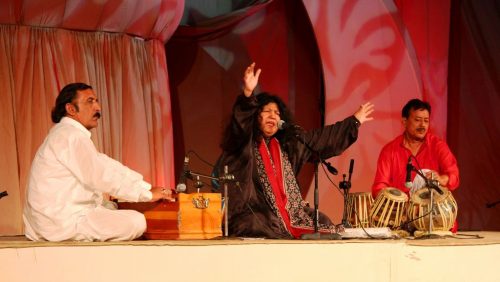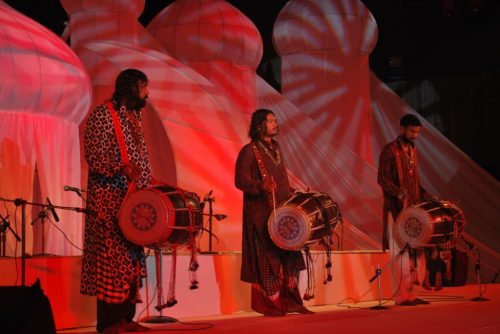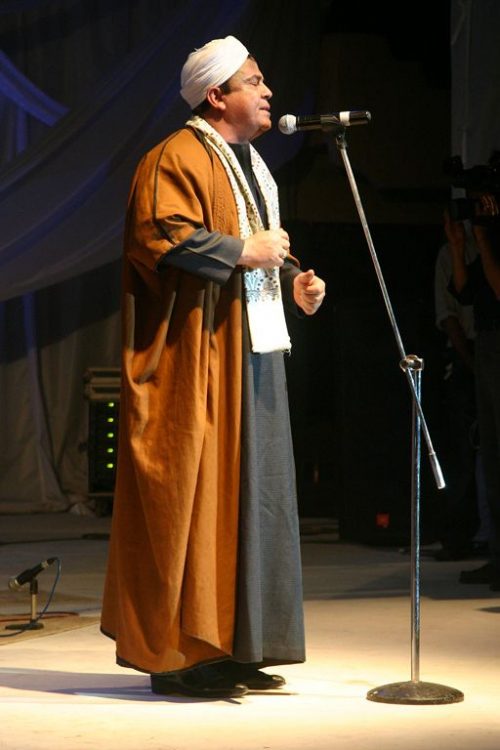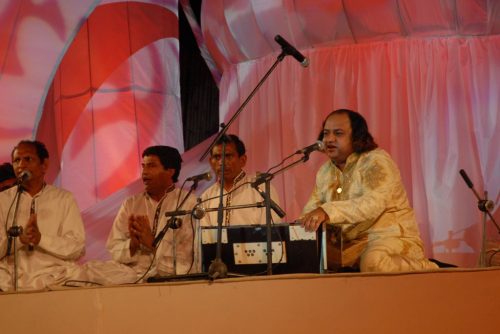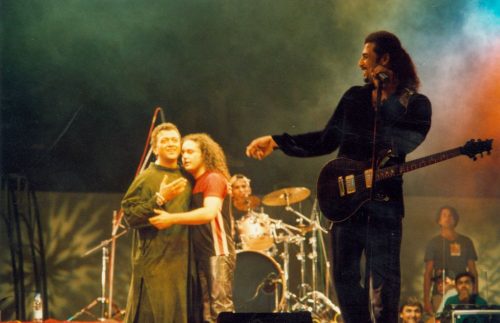The Sufi Soul World Music Festival was held in 2000 and 2001 and the International Mystic Music Sufi Festivals were held in 2006 and 2007.
International Mystic Music Sufi Festival
Rafi Peer Theatre Workshop felt it necessary to set up an international platform projecting Sufi music in Pakistan. Until a few years ago, Sufi singers in the country had been chalking out their own path in a commercialized sector, one that was fraught with many hardships and little recognition. It was in such a scenario that the Rafi Peer Theatre Workshop aimed to make the Sufi tradition of the subcontinent and the Muslim world more accessible to the public, creating awareness of its validity as a pragmatic Islamic practice and ensuring its survival in the face of current trends.
In all the writings of the Sufis, utmost importance was attached to a certain sacredness that this type of music demanded and the precincts of the shrine or the dargahs ensured that a minimum sanctity was maintained. It was not music alone that appealed to the people, but the entire set of conditions that determined a certain response and approach towards this ritual.
The problem started to arise when this music was unhinged from its moorings and played independently, and is now expected to fend itself from a listening public that is extremely varied. In Pakistan, this sacred music is played and sung at shrines throughout the country but is also being played and sung in concerts away from the physical environs of the shrine, and to a public that has come to listen to music and shed a few inhibitions in the process.
This must also be the problem with groups like the Maulavi and Mevlavi, those that draw their inspiration from the music and ritualistic practices of Maulana Rumi. Their music and dance have different connotations when performed at the shrine and totally different when staged in a concert hall. It is not that the music is changed and fashioned accordingly, but that the different environment changes the entire complexion of the music. From devotion and meditation, it becomes a performance, from a commitment it is transformed into an act.
The music created at the shrines of the Sufis was probably meant to express the sensibility that was being nurtured by the various orders. The Chistia were the most vociferous and consistent of the orders that upheld the need for music is not only part of the religious ritual but also is the essence of the Sufi message. The more unorthodox Sufi, if this term can be used, such as qalanders, malamatis and shataris, too, were strong advocates of musical expression. But all Sufis were not in favour of music as an integral part of the sensibility and preferred to limit it to its bare essentials. This debate about the place and role of music has characterised the history of the Muslims and has shaped the aesthetic responses of the various Muslim societies in the past fourteen hundred years.
What started off as purely devotional music in dargahs and mazaars has today metamorphosed into a rich singing culture.
In South Asia qawwali has been removed from its original location of shrines. Initially the shift was to private concerts in people’s houses and then to a more public platform. The qawwali changed considerably as Sabri Brothers and then Nusrat Fateh Ali Khan took it to international audiences. Now Shah Jo Raag Fakirs, the music particular to the shrine of Shah Abdul Latif Bhitai is struggling to adjust to this changed perspective.
For true music connoisseurs, the Mystic Music Sufi Festival has been providing pleasure and enlightenment. The festival has featured groups from Iran, Tajikistan, Egypt, Algeria, Morocco, Spain, France, Syria, India, USA, and Pakistan. Dance, music and poetry have formed the essential elements of the performances that highlight the eternal wisdom and beauty of the Sufi message.



